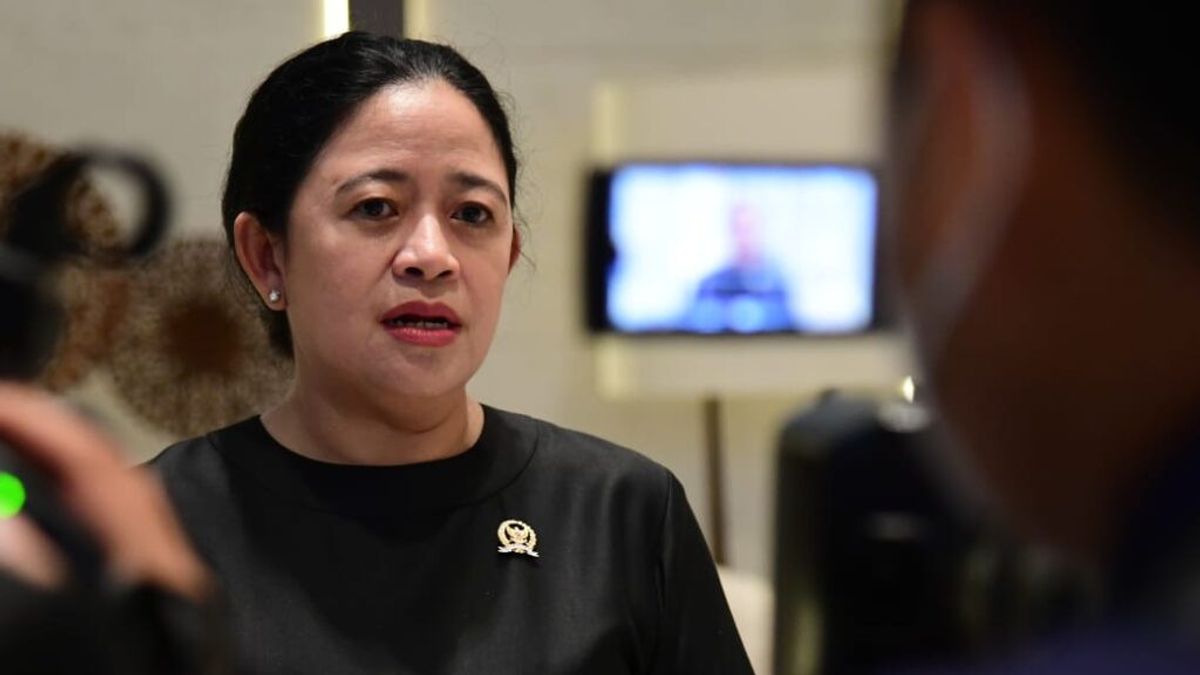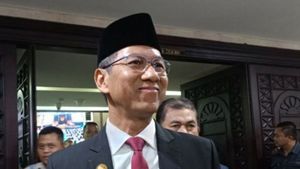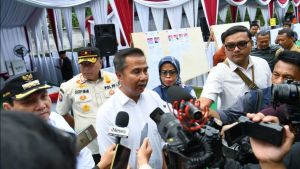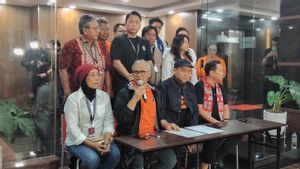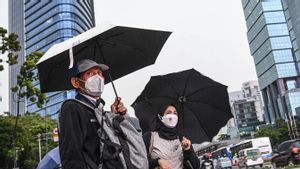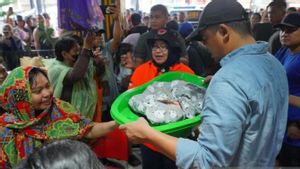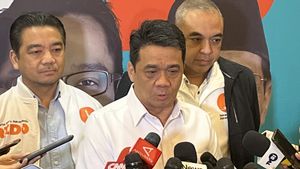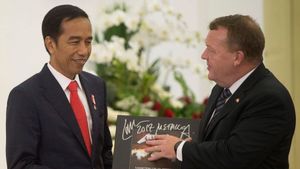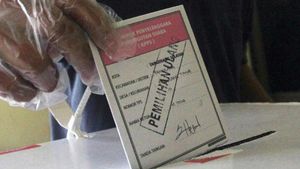JAKARTA - In the moment of Heroes' Day which is celebrated every November 10, the Speaker of the Indonesian House of Representatives, Puan Maharani, invites the entire community to remember the services of the heroes who fought for the blood of Indonesian independence. According to him, the Indonesian people are still in a state of struggle, one of which is to achieve justice.
"The Hero's Day commemoration always brings us to realize the struggle of the previous heroes who are willing to sacrifice for the sake of the nation's independence. The struggle of the heroes is carried out for the prosperity and welfare of the Indonesian people," said Puan, Friday, November 10.
Even though the Indonesian people are now independent, Puan assesses that the people's struggle must still occur. Not a struggle against the invaders, but a struggle against injustice in achieving real prosperity.
"Until now, there are still Indonesian people who have to fight even just to fulfill their daily meals. The prosperity that the previous heroes dreamed of, has not yet been fully achieved," he said.
"Especially in terms of justice. Good economic justice, justice gets equitable development, justice access to education and health, justice in law, justice gets a decent job, to justice for equality, and others," continued Puan.
Regarding justice in the economy, Bung Karno's grandson said that there are still many Indonesian people who are in the poverty line. In fact, said Puan, the principle of justice in the economy is a mandate from Pancasila and the 1945 Constitution (UUD).
"Indonesia's rapid economic progress should not lead to inequality and imbalance in society. But there are still many of our people who are fighting for their own sake of economic justice, especially in remote areas," he said.
Puan continued, economic justice is also closely related to equitable justice in development. He supports infrastructure development efforts that are not only concentrated on the island of Java, but also are considered to be accompanied by economic growth in each region.
"Many people in the 3T area hope that infrastructure development in their hometowns will be like in big cities. So that they will feel the same justice in obtaining access such as education, health services, and job opening that will affect their welfare," said Puan.
Apart from that, people in the regions are also said to need justice in terms of a decent living. Therefore, Puan encourages the Government to intervene in economic development programs in the regions.
اقرأ أيضا:
"The programs initiated by the Government are expected to spur economic growth in all regions in order to create economic justice and erode social inequality between residents in urban areas and rural areas," said the first woman who served as Chair of the DPR RI.
Puan also highlighted how in today's era, there are still many children of the nation's next generation who have to struggle to get their rights, for example the right to get proper education. This is because there are still millions of children in Indonesia who have dropped out of school where the majority are caused by economic problems.
Not to mention the number of students who still feel that the quality of education in Indonesia is not evenly distributed, as well as the inequality of educational infrastructure. Not a few school children have to struggle very hard to be able to study in school every day.
"Our brothers and sisters who are enthusiastic about getting education are fighters in achieving education justice," he said.
"We all know that there are many examples that show school children have to struggle in obtaining education. Starting from school access that is difficult to pass, to the lack of teaching staff which requires them to survive modestly in the midst of the onslaught of the progress of the times," added Puan.
Puan also said that education is not only about knowledge in school, but also about providing a solid foundation for the younger generation to prepare for their future.
Furthermore, Puan spoke about justice for people who are still struggling to get jobs. Including honorary staff whose status was unclear in the midst of the plan to abolish the profession.
"But with the Law on State Civil Apparatus (ASN) which has just been ratified by the DPR, the fate of honorary staff is guaranteed because the Government has an obligation to raise their status, and there should be no mass layoffs," said Puan.
On the other hand, Puan invites the public to interpret the commemoration of Heroes' Day in terms of prosperity in the health sector. According to him, there are still many people who are struggling to get adequate health services.
"Heterogeneous people's condition in many ways, such as geographical and socio-economic conditions raises the issue of justice for citizens' rights to adequate health services," he said.
"Often many underprivileged residents struggle to get health facilities, which is a reflection of the lack of justice in fulfilling the citizens' rights to health services. Of course this is our common homework," continued Puan.
Apart from health issues, the public is still experiencing impairment in terms of equality. Puan alluded to gender equality and protection for women that still need to be improved.
"Especially in the midst of the struggle of the heroes in the field of gender equality, we are still faced with the many sexual violence that women receive," he said.
The English, Chinese, Japanese, Arabic, and French versions are automatically generated by the AI. So there may still be inaccuracies in translating, please always see Indonesian as our main language. (system supported by DigitalSiber.id)
